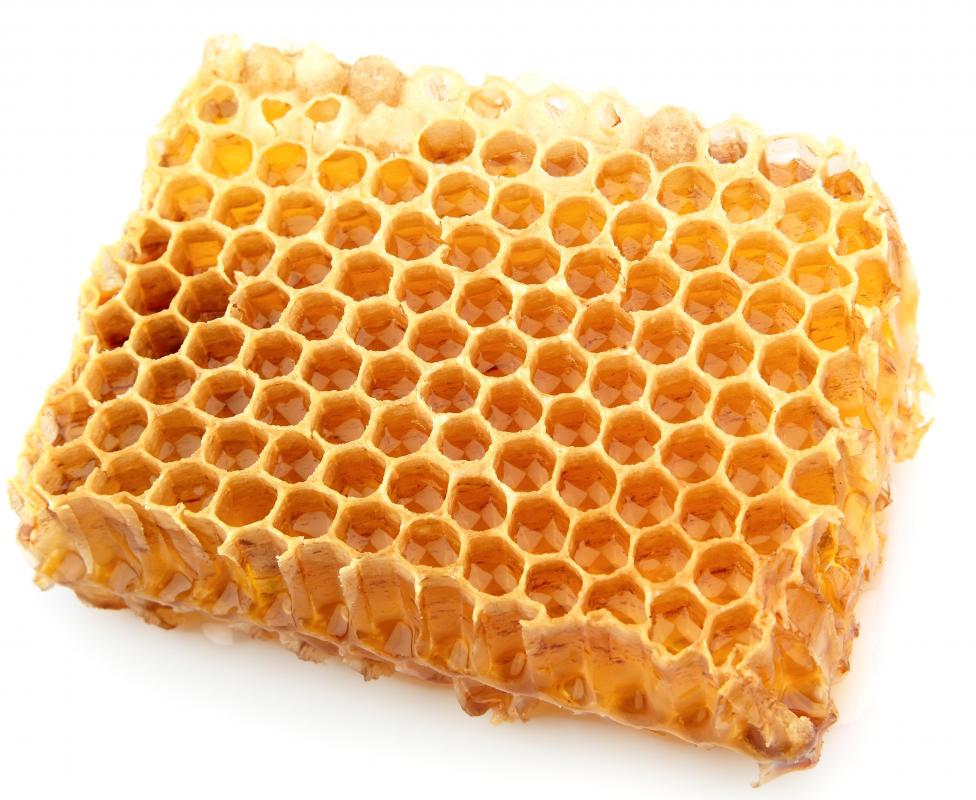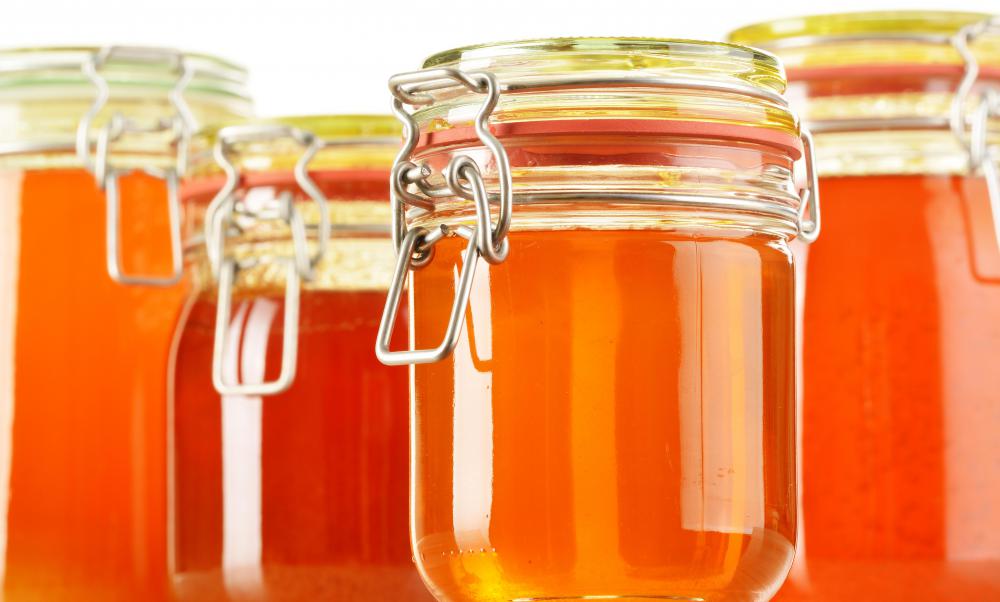At WiseGEEK, we're committed to delivering accurate, trustworthy information. Our expert-authored content is rigorously fact-checked and sourced from credible authorities. Discover how we uphold the highest standards in providing you with reliable knowledge.
What is the Nutritional Value of Honey?
The nutritional value of honey can vary slightly depending on the location and from the type of flowers from which the honey nectar was collected. In general, however, honey is nutritious and can be used as a healthy substitute for sugar. About 80 percent of honey is made up of sugars, about 17 percent is water, and the remaining 3 percent include vitamins, minerals, proteins and other nutrients. The nutritional value of honey is why it is often used in home remedies to cure common ailments of the digestive system, to increase energy levels and to treat minor burns and other skin wounds.
The sugars in honey are mainly fructose and glucose, but it also contains small amounts of maltose and sucrose. The vitamins in honey include many of the B vitamins such as B2, B3, B5, B6 and B9. It also contains vitamin C, which acts as a powerful antioxidant. Minerals such as potassium, calcium, phosphorus, sodium and magnesium are found in fair amounts in honey. Other minerals in honey include zinc, selenium, copper, manganese and iron.

Amino acids such as tryptophan, lysine, tyrosine, arginine and glycine also add to the nutritional value of honey. These are the ingredients that the body uses to build its own protein. Antioxidants such as chrysin, pinobanksin, pinocembrin and catalase can help prevent age-related diseases by neutralizing harmful antioxidants. Honey is also rich with antibacterial and anti-fungal properties that can help prevent infections caused by minor burns, cuts and other skin wounds.

Honey contains about 64-87 calories per tablespoon. This is more calories than in regular table sugar, but because of the nutritional value of honey, the extra calories are insignificant. In addition, because of the high amount of fructose in honey, it is sweeter than sugar, which means that less honey is needed in order to achieve the same sweetness.

When added to the diet in moderation, honey can add to the nutritional value of foods by supplying additional nutrients. It can be used in coffee, tea, baked goods, meat dishes and in salad dressings. The nutritional value of honey from different farms can vary, because the bees will have a different source for their nectar. Processed honey will also have a lower nutritional value, because some of the nutrients in honey are destroyed by the heating process.

The nutritional benefits of honey include more energy, which can help athletes be more competitive and can help in weight loss. Digestive ailments such as bloating, gas, vomiting, diarrhea and pain associated with ulcers can be relieved with honey. People who have diabetes can also benefit by switching to honey, because it has a lower glycemic index. Honey should not be given to babies who are less than 1 year old, because of the endospores in it.
AS FEATURED ON:
AS FEATURED ON:















Discuss this Article
Post your comments